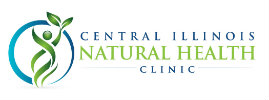Based on much recent research linking low levels of vitamin D to increased risk of heart disease, this is something I measure in all of my older patients. If low, supplementation is simple, cheap, and can effectively raise those levels back up. This is especially important at this time of year, since the sun is not strong enough to produce any vitamin D from skin exposure at our latitude.
“The study actually shows that vitamin D does not protect you against heart disease,” said Helen M. Macdonald, a senior lecturer at the University of Aberdeen in Scotland, who led the study. “That’s not what people want to hear, but it’s true.”
Now hold on a minute. The researchers are making a huge assumption: that the risk markers of cholesterol, C-reactive protein, etc., are synonymous with heart disease. The thinking is that if something (in this case vitamin D) does not affect those traditional risk markers directly, there is no impact on heart disease. However, it is well known that a significant percentage of heart disease and heart attacks occur in people with normal cholesterol levels and blood pressure. Perhaps vitamin D is an independent risk factor — that is, it could protect against heart disease without changing those other parameters.
The way to really tell this for sure experimentally would be to use actual cases of heart disease as the end point of vitamin D supplementation. This study was a good first step, but the error in logic on the part of the researchers is glaring. In the meantime, I’ll keep checking blood levels of vitamin D on my patients over age 40 as part of an overall cardiovascular risk assessment, using the naturopathic principle of “Treat the whole person.”
1. Vitamin D3 Supplementation Has No Effect on Conventional Cardiovascular Risk Factors: A Parallel-Group, Double-Blind, Placebo-Controlled RCT. Published online before printAugust 3, 2012, doi:10.1210/jc.2012-2126
The Journal of Clinical Endocrinology & Metabolism, October 1, 2012 vol. 97 no. 103557-3568
